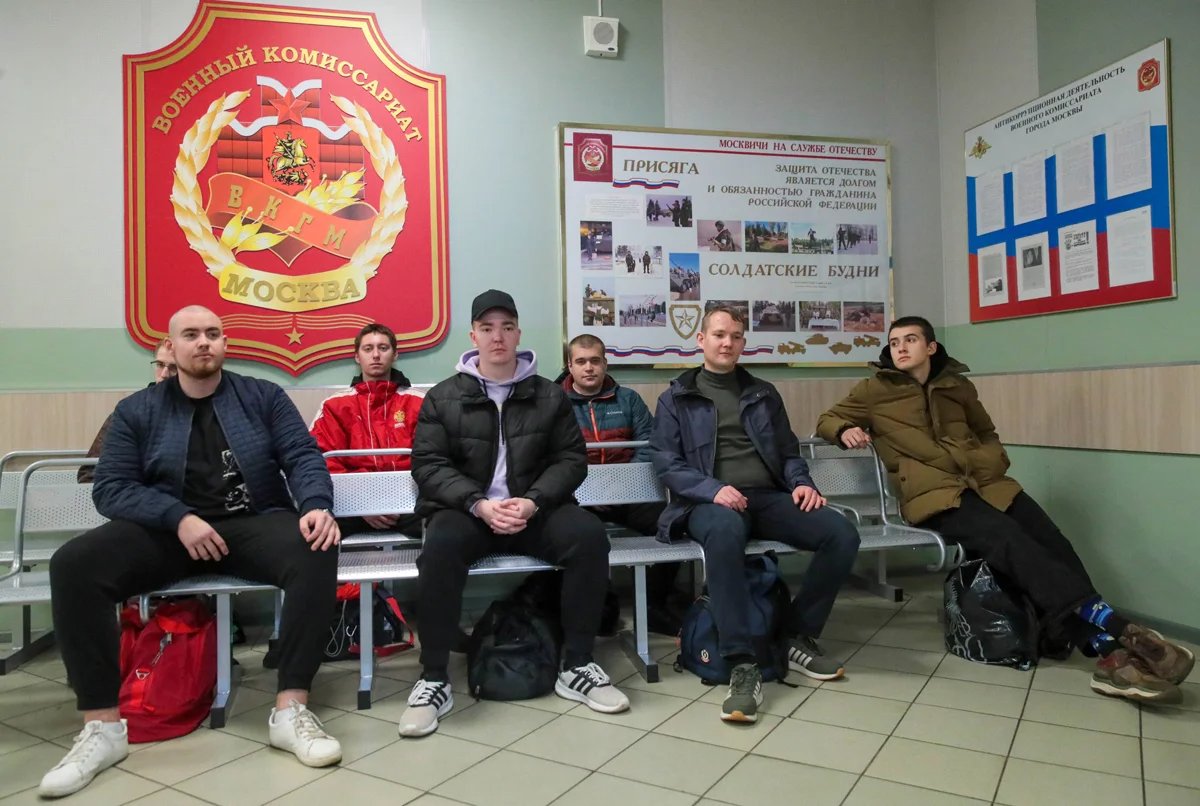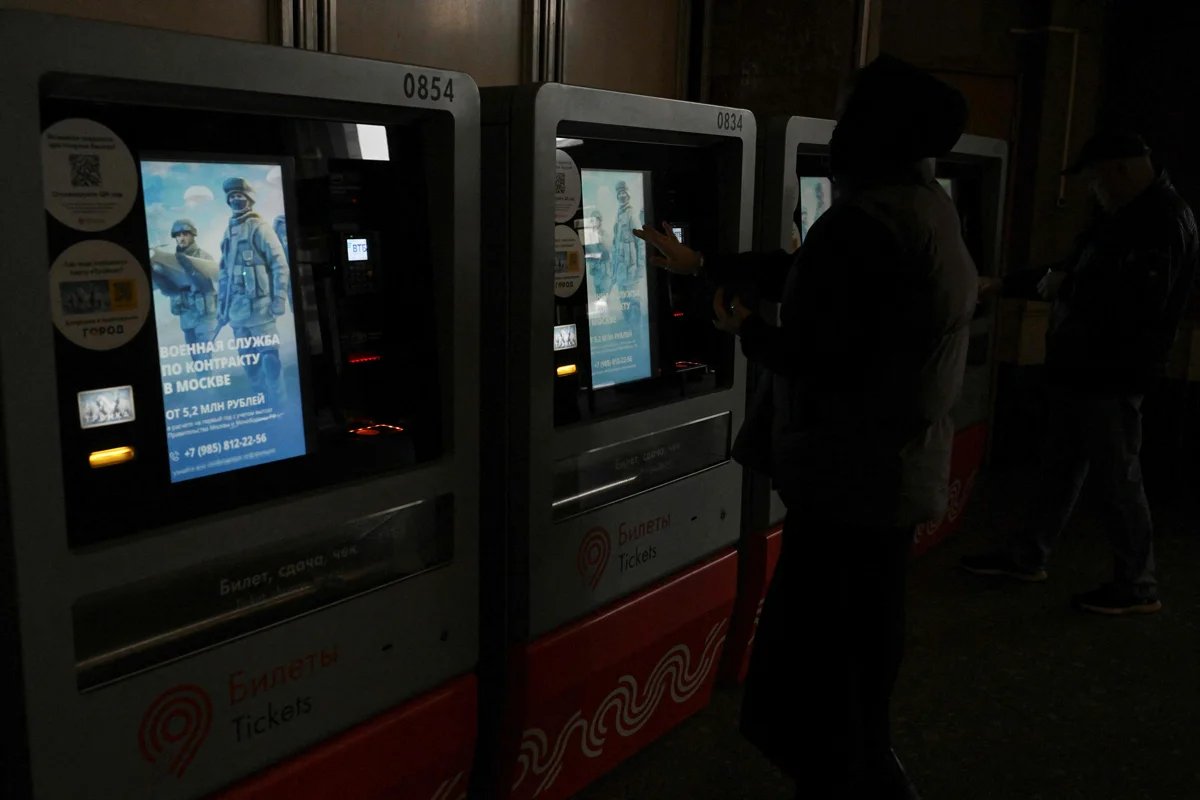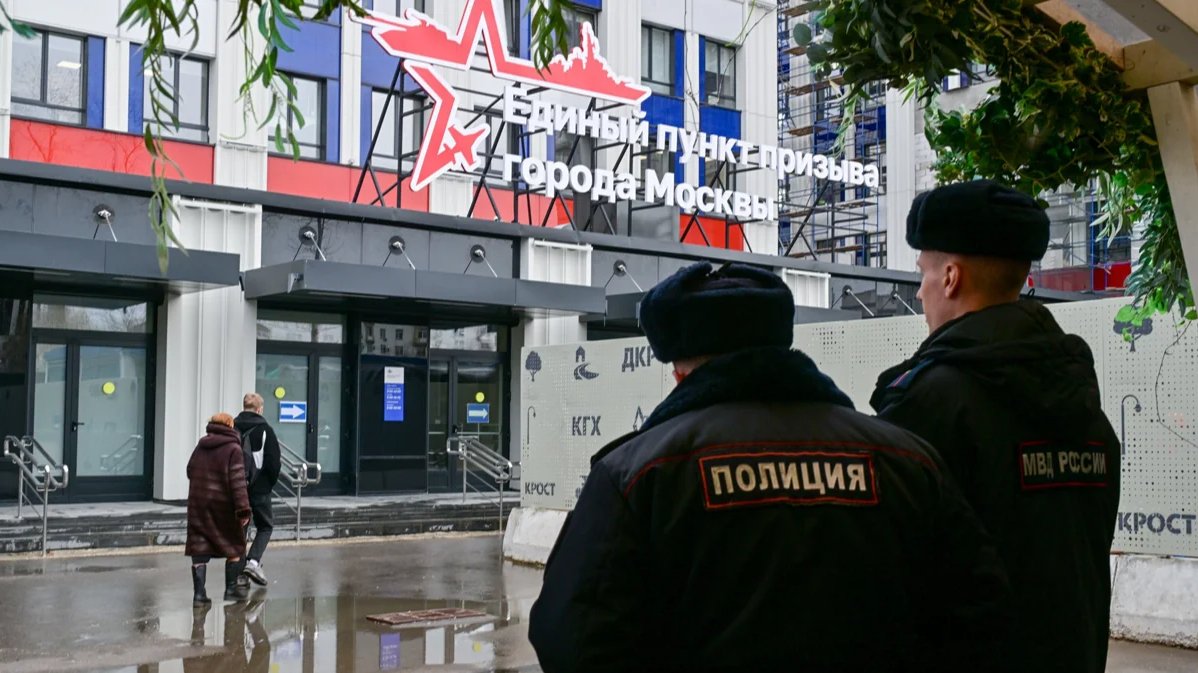Last month, Vladimir Putin decreed the largest intake of conscripts by the Russian military in 14 years, ordering the Ministry of Defence to draft 160,000 new recruits this year alone. The spring conscription campaign, which began on 1 April and will last until 15 July, has been accompanied by warnings from human rights activists about the growing frequency with which illegal round ups are being used as a means to meet these ambitious targets.
Timofey Vaskin, a lawyer with the nonprofit human rights project Shkola Prizyvnika, told independent Russian TV channel Dozhd that the illegal detention of those potentially liable for conscription had become a massive problem this year, with young males most at risk of being snatched while using the Moscow metro, which has an advanced facial recognition system in place and police officers on duty at every station.
Artyom, a student who was drafted in the fall of 2024 without having undergone a medical, was detained in the Moscow metro and taken to a police station without being told why, the Movement of Conscientious Objectors (MCO), a Russian nonprofit, wrote last Monday. As an undergraduate student, Artyom was already entitled to defer his mandatory one-year military service, though he has also been given an exemption from service on mental health grounds.
Even those who have been given permission to defer their military service are not safe and are being detained in increased numbers.
From the police station, Artyom was taken to a conscription point, where his father managed to get all the required medical documents to him, which the doctors examined, before sending him to a psychiatric hospital for further consultation. His draft was ultimately deferred.
“If you live in Moscow and … your military service has not been deferred, forcible conscription is possible at any time in the capital,” an MCO human rights activist said.

Conscripts at a Moscow conscription centre, 25 October 2024. Photo: Vasily Kuzmichonok / AGN Moskva
Last week, Russia’s lower house of parliament, the State Duma, approved legislation making military call-up papers valid for up to one year. Prior to that, draft notices expired along with the conscription period itself, meaning they were valid for a maximum of three and a half months, twice a year. The law, however, has yet to enter force, and will not be retroactive, meaning that year-round call-ups will only be possible from next year.
Even those who have been given permission to defer their military service are not safe and are being detained in increased numbers. Get Lost, an anti-war charity, cited the case of a young man who was forced to go to a conscription point while on his way to work. “Police got onto the train and asked him to go with them. … When he asked why, they told him that the military registration and enlistment office had put him on the wanted list”.
Once a person is forcibly taken to a conscription point, they can find themselves illegally coerced into beginning their military service the same day.
Fortunately, the young man in question had the medical documentation confirming his exemption from conscription due to his poor eyesight. Though he allowed the police to inspect his phone, ID and medical documents, he refused to hand them over.
“They took my work pass, looked it over and said that they needed my ID so that I wouldn’t run away. They said that if I didn’t agree, they would handcuff me and take my things,” he told activists.
Ivan Chuvilyaev of Get Lost told Novaya Europe that the man was eventually allowed to leave the police room at the metro station “unharmed” and was not taken to a conscription point.
“It ended well for him, because he had all the documents to say he had serious problems with his eyesight and wasn’t subject to conscription. He was released. However, he was still summoned to the conscription point for another medical. But he shouldn’t have had to do that at all, since he’d already had one,” Chuvilyaev added.

Digital advertising urges men to enlist in the Russian military on the Moscow metro, 30 September 2024. Photo: Natalia Kolesnikova / AFP / Scanpix / LETA
Vaskin from the Shkola Prizyvnika says a person can still be “rescued” while at a police station, but neither a lawyer nor relatives will be granted access to a military enlistment office or a conscription point, and it’s often impossible to get paperwork to somebody once they’ve been taken to one.
The real issue is not the police stopping men in the metro to check their paperwork because they’ve been identified by facial recognition systems, Chuvilyaev says, but the fact that once a person is forcibly taken to a conscription point, they can find themselves illegally coerced into beginning their military service the same day.
The military enlistment office is only empowered to call people up by summons only, and the rules state that a medical examination, appearance before the conscription commission and the dispatch to the conscription point cannot all take place on the same day.
“Sadly, this modern-day hunt for conscripts using CCTV is legal.”
“We don’t know whether the cameras really pick out people who have ignored their summons to the military enlistment office, so wearing a medical mask so as not to be detained in the subway won’t help. The main thing that young men need to know is that they definitely don’t need to go to the military enlistment office just because they’re worried they might be detained in the metro,” a Get Lost staff member says.
A lawyer for Peace Plea, an organisation that helps people avoid the draft, told Novaya Europe that since changes to the law in 2023, police officers are now within their rights to track down conscripts.
“These officers have access to phone bills, CCTV footage, various databases, such as healthcare and education. So, sadly, this modern-day hunt for conscripts using CCTV is legal,” they said.
He added that in some cases, young men who go to military enlistment offices after receiving their call up papers were being persuaded to sign a contract to fight in Ukraine then and there, becoming professional soldiers who earn a salary, but who — crucially — must serve indefinitely, as opposed to regular conscripts who typically serve far from the frontline and earn a small monthly stipend, but who are only made to serve for a year.
Join us in rebuilding Novaya Gazeta Europe
The Russian government has banned independent media. We were forced to leave our country in order to keep doing our job, telling our readers about what is going on Russia, Ukraine and Europe.
We will continue fighting against warfare and dictatorship. We believe that freedom of speech is the most efficient antidote against tyranny. Support us financially to help us fight for peace and freedom.
By clicking the Support button, you agree to the processing of your personal data.
To cancel a regular donation, please write to [email protected]

